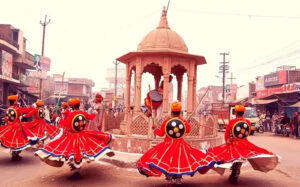
While conducting research for my nonprofit Rajasthani Boli, I learned that the Rajasthani language still needs a Unicode. Rajasthan state government approved a project in 2019 to develop a Unicode for ten Rajasthani languages. It is handled by Rajasthan State Archives, Bikaner (RSAB)
Unicode is a standardized system for encoding and representing text characters from all worldwide writing systems. It provides a unique code point for every character, regardless of platform, program, or language. The Unicode Consortium is a nonprofit organization that manages and maintains the Unicode standard.
Unicode includes a comprehensive set of characters covering scripts for major languages, mathematical symbols, punctuation marks, and more. It aims to be a universal character encoding that can represent all the characters used by the world’s diverse languages and writing systems. One of the primary goals of Unicode is to ensure consistency in character encoding across different platforms and software applications. This means that a Unicode-encoded document or text should display the same way regardless of the system or software used to view it. Unicode supports multiple languages and scripts simultaneously. This is crucial for applications and documents containing text in different languages. It eliminates the need for different encoding systems for each language. Unicode is designed to be extensible, allowing new characters and scripts to be added. This flexibility ensures that the standard can evolve to accommodate the needs of new languages and writing systems. Unicode is backward compatible with ASCII (American Standard Code for Information Interchange) and includes the characters from ASCII as a subset. This makes it easier to transition from older character encoding standards to Unicode.


